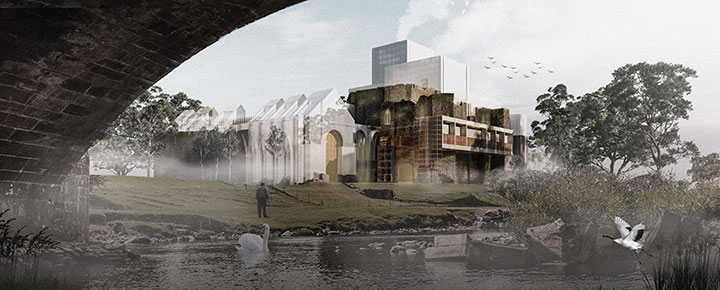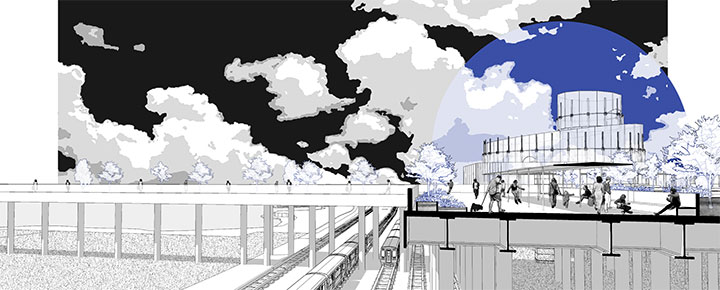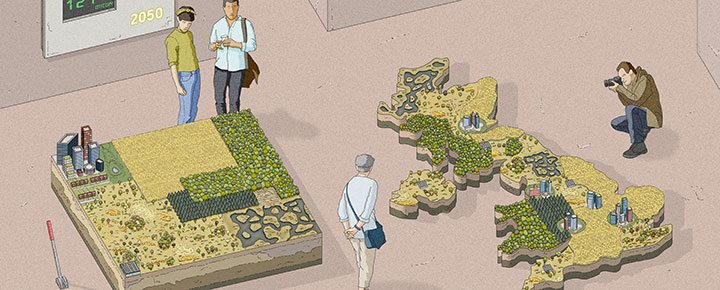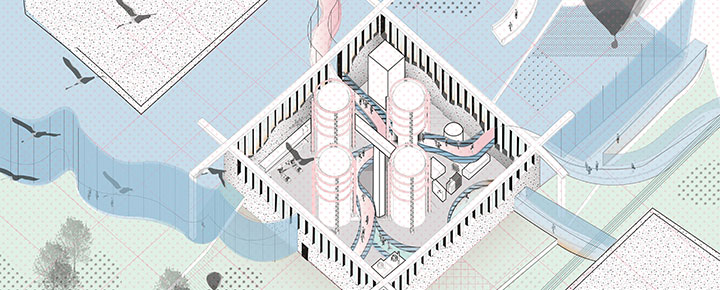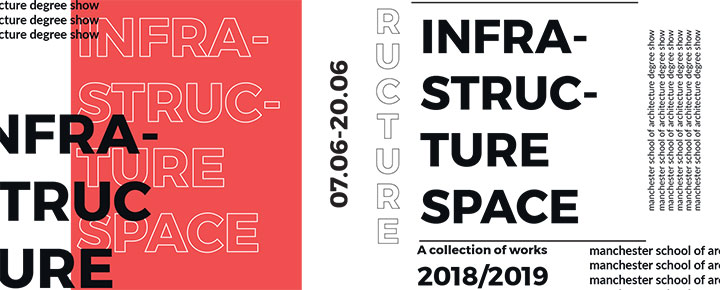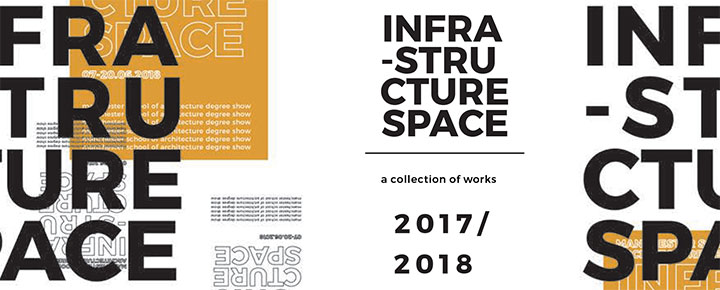Infrastructure Space is a relatively new atelier in name; however it has a longstanding history at Manchester School of Architecture. In the 1990s, Landscape + Urbanism (L+U), was an atelier founded to address the critical territory defined by contemporary theorists that saw no distinction between the fabric and fabrication of space and viewed the built environment as a continuous field. The main proponents of this way of thinking were Stan Allen, James Corner, Ignasi de Sola-Morales and, to some extent, Rem Koolhaas. These foundations still have some currency today and there continues to be new writing and teaching attached to the various interpretations of ‘landscape urbanism’.
Building upon L+U, the [Re_Map] atelier (2008-16) sought to advance the methods of mapping and representation inherent in landscape urbanism through novel computational methods. Datasets expanded massively as machine learning was on the horizon and the ability to geo-locate data as a means of highlighting latent social, environmental and cultural conditions of place was developed and deployed through [Re-Map] projects and presented at several global conferences. [Re_Map] was critically engaged with the system city and spaces of flows, a position that drew upon the idea of the continuous field and combined it with systems thinking. The mechanical metaphors so bound with modernism were replaced by mathematical models that referenced biological systems – the city as a complex organism. By the middle of the 2010s, data mapping became so ubiquitous it was no longer a novel method, it was simply one of the many means by which we interrogate space – you only have to watch election night coverage to see how this has seeped into popular media.
Infrastructure Space was established in 2017 to acknowledge the infrastructural turn in architectural theory, to embrace the thinking and methods established in L+U and [Re_Map] and to explore new territory, specifically the interface between digital communications, infrastructure and the production of space no longer limited to urban contexts, but accepting the often intangible manufactured nature of most British landscapes. This history of the atelier and its development over a quarter of a century, consistently adapting to new theory and new realities means that it has both a core foundation of texts that underpin and contextualise it, as well as new readings with which we attempt to interpret and synthesise ideas into form.
See our Data Mapping Cornwall project.
Thanks to our 2023/24 guests for their expertise and knowledge. Aaron Wall (Roscoe), Alex Walton (Arcadis), Alexander Wallace (BDP), Dr Andy Jenkins (Salford University), Arif Izzuddin Arif Ismail (SimpsonHaugh), Ben Porter (Hawkins Brown), Chris D'Agorne (Life to Land), Chris Phillipson (Cumming Group), Chris Staniowski (Manning Elliot), Claudia West (PHYTO), Craig Mitchel (BCA Landscape), David Mountain (RTPI), Dr Derek Hales (Salford University), Emma Beech (Emma Beech Design), Dr Fadi Shayya (Salford University), Francis Hesketh (TEP), Jack Hastings (WML Consulting), Jack Penford Baker (Haptic Architects), Kieran Thompson (Arcadis), Dr Laura Coucill (Salford University), Lewis Sykes (Lewis Sykes), Maciej Olszak (BDP), Mai Que Ta (Manalo & White Architects), Marc Tromes (Allen Scott Landscape Architecture), Matthew Sanders (ARUP), Michael Beswick (Systra), Michael Walsh (Arcadis), Peter Skidmore (Stride Treglown), Peter Staniforth, Polina Chizhova Wright (Strange Quark), Professor Richard Brook (Lancaster University), Steve Reynolds (Westlakes), Tim Greensmith (Feilden Clegg Bradley Studio), Vaseem Bhatti (ehquestionmark), Vijay Taheem (Salford University).
Thanks to our 2023/24 stakeholders for their experience, knowledge, and support. Andrew Cooney (Sellafield Ltd), Andy Ross (Genr8North), Chris Pickup (Arcadis), Chris Staniowski (Manning Elliot), Christopher Harrison (Cumberland Council), David Farrell (Farrell Sports), Dr David Mountain (RTPI),David Wright (Gleeson), Graeme Scott (Arcadis), Ian Hinde (Cumberland Council), Ian Tellam (University of Manchester), James Cobbold (Cumbria Woodlands), James Thorpe (Natural England), John Edmondson (Edmondson Design), Dr John Scanlan (UCLAN), Jordan Tyson (Gleeson), Kieran Thompson (Arcadis), Lily Street (Manning Elliot), Lochlan Dulson (Cumbria Woodlands), Mark Walker (Genr8North), Michael Walsh (Arcadis), Mikey Hamer (Gleeson), Niamh Keddy (Natural England), Nick Bailey (Manning Elliot), Nick Hayhurst (Cumberland Council), Dr Petra Tjitske Kalshoven (University of Manchester), Rachel Carpenter (Natural England), Dr Samuel Woodford (Cumberland Council), Sue Mackay (Florence Arts Centre).


















